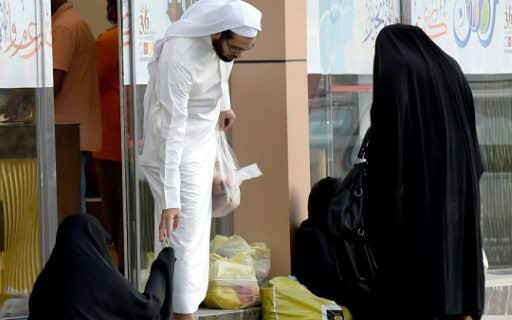On 28 April 2017, Philip Alston, the United Nations Special Rapporteur on extreme poverty and human rights, released the report of his visit to Saudi Arabia. In his report, the Rapporteur focused on poverty among both Saudi women and female migrant laborers in the kingdom. This approach was entailed by the Rapporteur’s definition of poverty as a “multidimensional phenomenon requiring consideration not just of income and wealth but also of other factors such as access to basic services, problems of exclusion and powerlessness.” Within this understanding, women in Saudi Arabia are disproportionately affected by poverty which is both a cause and consequence of the structural impediments to their social advancement.
Saudi women are subjected to the kingdom’s system of male guardianship, under which every Saudi woman must have a male guardian (wali). This system requires that women receive the approval of their male guardian—often their fathers or husbands, but sometimes their brothers or sons—before they can make a number of important decisions. Among these decisions are marrying, working, traveling, making monetary transactions, undergoing certain medical procedures, or getting out of jail. However, many institutions necessitate a guardian’s consent even when not formally required. The excessive level of control granted to male guardians effectively renders women of all ages legal minors.
Women face a number of barriers to obtaining employment, including the need to obtain their guardian’s approval and general restrictions on freedom of mobility, such as the prohibition on women driving. While all Saudi women face these issues, the Rapporteur notes that these barriers “weigh even more heavily on women living in poverty.” Wealthier Saudi women can hire drivers to take them to work and pay domestic workers to take care of their children while they are out of the house. However, poor women may not be able to pay for a driver to take them to their workplace. Neither can they pay for a domestic worker to take care of their children. As the Rapporteur observes, “Hiring a migrant domestic worker is prohibitively expensive.”
Women abandoned by their husbands are also at particular risk of falling into poverty as they cannot receive social assistance from the government until they have obtained a divorce. However, divorce proceedings can often take years to conclude. Many of these problems can be traced back to Saudi Arabia’s system of male guardianship, which forces women to rely on male relatives for financial support.
The Special Rapporteur also emphasized that female migrant workers experience unique abuses that make them among the poorest segments of Saudi society. There are about 3 million female migrant workers in Saudi Arabia. Many regularly face issues such as non-payment of salaries, excessive working hours, and verbal, mental, physical, and sexual abuse. Much of this abuse is facilitated by the kafala system of labor sponsorship, which allows hiring agencies to charge migrant women excessive recruitment fees that they then deduct from the women’s salaries. Such recruitment practices make it very difficult for women to leave their employers because of the lengthy amount of time it takes for the women to pay back their recruitment fees. This is often exacerbated by employers who confiscate their employees’ passports and cellphones, leaving women unable to leave Saudi Arabia and thus unable to escape abuse and poverty.
While the effects of the guardianship system on women’s employment and the kafala system on female migrants have been previously documented, the Special Rapporteur’s report directly links these issues with a multi-faceted notion of poverty that takes into account women’s inability to change their situation. Saudi women are generally excluded from the political decision-making process, leaving them largely powerless to advance changes in the guardianship system and lessen its effects on women in poverty. Similarly, female migrant workers are largely powerless to changing the circumstances of their employment or the widespread abuse they face upon arriving in the kingdom. In many cases, they are even powerless to simply leave.
The Special Rapporteur’s report offers a broad understanding of poverty that goes beyond a simple lack of wealth or economic opportunity. He not only examines how Saudi women and female migrants are disproportionately affected by poverty, but also how they are unable to change the structural aspects of their vulnerability. This multi-faceted report addresses some of the most fundamental problems women face in Saudi Arabia and the government should not only take it under advisement, but also work to fully implement the Rapporteur’s recommendations.





